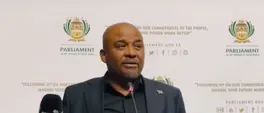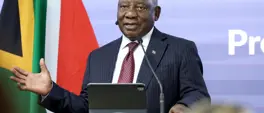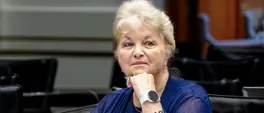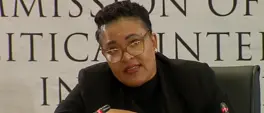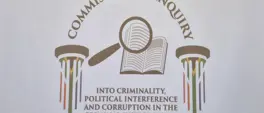Ramaphosa welcomes report on global inequality, to call for institution to be set up to deal with it
Lindsay Dentlinger
4 November 2025 | 15:29Receiving a report from an expert panel led by Professor Joseph Stiglitz on Tuesday, President Cyril Ramaphosa said he would call for an institution to be set up to deal with inequality when he opens the G20 Leaders' Summit in 18 days' time.
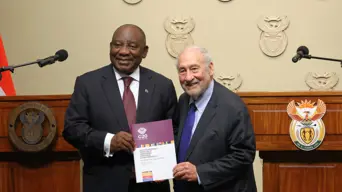
President Cyril Ramaphosa (left) receives the Report of the G20 Extraordinary Committee of Independent Experts of Global Inequality from Professor Joseph Stiglitz (right) at Tuynhuys, Cape Town on 4 November 2025. Picture: Siyabulela Duda/GCIS
Nobel laureate Joseph Stiglitz says global inequality is a choice, and he’s praised South Africa for putting it at the top of the G20 agenda.
Receiving a report from an expert panel led by Stiglitz on Tuesday, President Cyril Ramaphosa said he would call for an institution to be set up to deal with inequality when he opens the G20 Leaders' Summit in 18 days' time.
A key finding of the report is for an international panel on inequality to be established to support governments and multilateral agencies in assessing and analysing the extent of inequality.
With South Africa and Namibia topping the global list of unequal societies, Ramaphosa said that much of the inequality stems from a history of colonialism and apartheid.
He welcomed the report compiled by a panel he appointed in August, saying it provided a blueprint for putting matters of inequality on the global agenda.
"It correctly asserts that inequality is, in the end, a betrayal of people’s dignity, an impediment to inclusive growth, and a threat to democracy itself."
Leader of the panel, Professor Joseph Stiglitz, said that inequality was not only about wealth, but also impacted every aspect of people’s lives and their accessibility to services such as health and education.
"A lot of the wealth at the top is the result of monopoly, power and exploitation. The issue has gotten clearer and clearer. Now it stares you in the face and you can’t not notice."
Stiglitz said it was possible for governments of the world to close the gap in inequality through their economic policies.
Get the whole picture 💡
Take a look at the topic timeline for all related articles.




